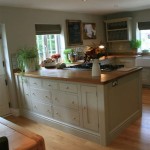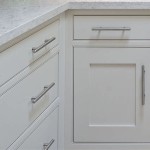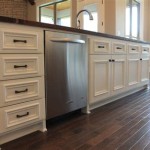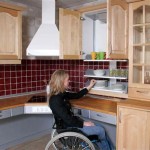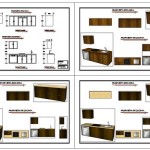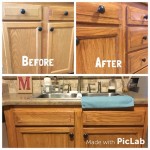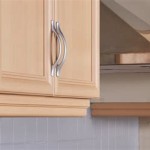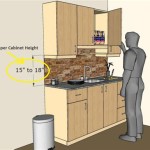Essential Considerations for Kitchen Cabinet Resurfacing Material
Revitalizing your kitchen without replacing your cabinets is possible with kitchen cabinet resurfacing. Choosing the right resurfacing material is crucial to ensure durability, aesthetics, and functionality. Here are key aspects to consider:
Material Options
Laminate: Budget-friendly with a wide range of colors, patterns, and textures. It's durable and easy to clean, but prone to chipping and peeling with heavy use.
Wood Veneer: Thin slices of real wood applied to the cabinet surface. Provides a natural look and feel, but can be susceptible to scratches and water damage.
Acrylic: Smooth, high-gloss finish that offers a premium look. It's durable, but can be more expensive than other options.
PVC: Versatile and moisture-resistant, making it suitable for high-humidity areas like kitchens. Available in various colors and finishes.
Thermofoil: Heat-applied vinyl film that conforms to the cabinet surface, providing a seamless look. It's durable and water-resistant but can be prone to peeling.
Durability
Consider the frequency of use and the wear and tear your cabinets will endure. Laminate and acrylic are highly durable, while wood veneer and PVC offer moderate resistance to scratches and impacts.
Aesthetics
Match the resurfacing material to your kitchen decor and personal style. Laminate offers a wide range of options, wood veneer provides a natural look, and acrylic and PVC come in modern, high-gloss finishes.
Maintenance
Different materials require varying levels of maintenance. Laminate is easy to clean with mild cleansers, while wood veneer needs regular polishing. Acrylic and PVC are more resistant to stains and scratches, but should be handled with care.
Cost
The cost of cabinet resurfacing varies depending on the material, size of the kitchen, and complexity of the job. Laminate and PVC are generally more budget-friendly, while wood veneer and acrylic are more expensive.
Professional Installation
Ensure proper installation by hiring a reputable contractor with experience in cabinet resurfacing. They can provide expert advice on material selection and ensure a high-quality finish.
Conclusion
Selecting the right kitchen cabinet resurfacing material is crucial to achieving the desired aesthetic, functionality, and longevity. Consider the durability, aesthetics, maintenance requirements, cost, and professional installation to make an informed decision. By carefully evaluating these factors, you can transform your kitchen with a stunning and practical resurfacing that meets your specific needs.

What Types Of Materials Are Available In Cabinet Refacing Factory Direct Renovations Group

Diy Cabinet Refacing Budget Friendly Made Easy Wisewood

Average Cost To Reface Cabinets By Li Foot Material And Type Forbes Home

Diy Cabinet Refacing Budget Friendly Made Easy Wisewood

What Types Of Materials Are Available In Cabinet Refacing Factory Direct Renovations Group

How To Resurface Kitchen Cabinets 2024 Guide Forbes Home

Sustainable And Eco Friendly Kitchen Cabinet Refacing

Kitchen Cabinet Refacing Options And Tips

Kitchen Cabinet Refacing By Improveit

The Common Problems With Refacing Kitchen Cabinets Guilin
Related Posts

